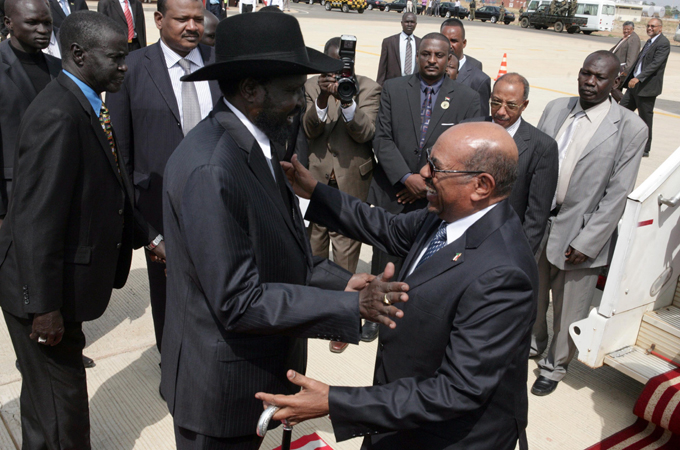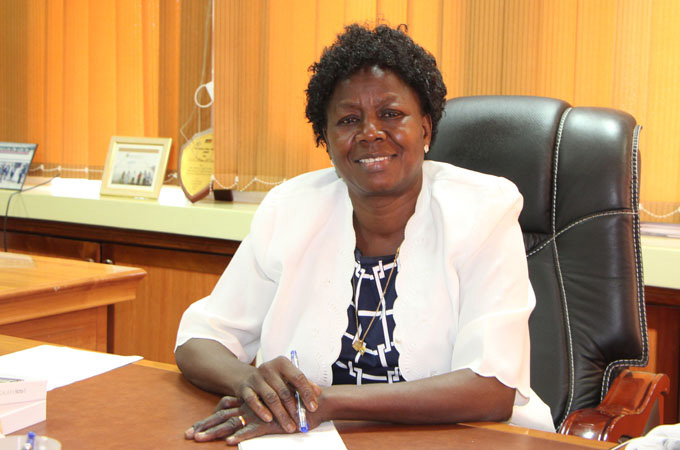South Sudan’s race against time
Private sector and agriculture development urgently needed with oil reserves quickly depleting.

Juba, South Sudan – A heavy reliance on oil revenue needs to be urgently rectified by South Sudan’s government, analysts say, with the potential of the country’s promising agriculture sector one of the best bets for diversification.
Even though oil production recently resumed after a 16-month stalemate over transit fees with Sudan to the north, the government desperately needs to develop the private sector to provide jobs and ensure stable economic growth going forward, according to the World Bank.
Keep reading
list of 4 itemsRussia’s Putin eyes greater support from China for Ukraine war effort
India-Iran port deal: A gateway to Central Asia or a geostrategic headache?
India’s income inequality widens, should wealth be redistributed?
“It is a major challenge for the government to reorient itself from the oil dependence, which will last for some years, to build a much broader base of the economy through construction and maintenance of infrastructure, as well as actions to stimulate agriculture and broader private sector development,” Bella Bird, World Bank country director for Sudan, South Sudan and Somalia, told Al Jazeera.
Some people have an unrealistic sense of pride. People have to change their mindset. Just because you are independent, everything will not come for free.
Bird made her comments ahead of South Sudan’s two year independence anniversary on Tuesday. It split with Sudan in 2011 to become the world’s youngest country after decades of war that killed an estimated two million people.
While some investment has taken place mostly in the capital Juba, foreign investors have been hesitant because of the high cost of operating in the country, as well as ongoing insecurity.
Finding qualified workers is also proving difficult with an estimated 80 percent of South Sudan’s population illiterate. South Sudanese have also shunned low-skill, low-paying jobs, which has hurt the economy.
“Some people have an unrealistic sense of pride,” Atem Yaak Atem, deputy minister of information, told Al Jazeera. “People have to change their mindset. Just because you are independent, everything will not come for free. We have brought the cattle herding mentality to the city, people were comfortable with little effort.”
Many foreign investors in Juba have brought their own labour force with them. The last few years have seen a significant rise in Kenyan, Ugandan and Ethiopian workers, which is creating negative sentiment among unemployed South Sudanese.
“The government has to regulate foreign labour. We are not lazy, but the government needs to provide us with jobs,” said John, an unemployed man who asked that his surname not be used. “Many times you apply for a job that is in the newspaper, but it is already taken by somebody. You have to have connections.”
When asked whether he is considering starting a business, he answered: “The banks are not lending. You need capital to start your own business.”
While the government has taken some steps towards putting in place regulations for favorable business environment, implementation is often hampered by nascent institutions. There has been some progress in issuing business licenses, but companies still report that in order to import or export goods via Uganda, significant bribes are needed along the way. The risk of doing business continues to be high.
Breadbasket potential
Investment in South Sudan’s agriculture sector is particularly important. According to the World Food Programme (WFP), about 90 percent of the population continues to live in rural areas and is dependent on agriculture.
More than 90 percent of South Sudan’s land is arable, with the potential to become the breadbasket of Africa and the Middle East. But only four percent of the land is cultivated today, and South Sudan continues to rely on agricultural imports from Uganda and Kenya.
 |
| Sudan’s President Omar Hassan al-Bashir (R) and his South Sudan counterpart Salva Kiir (L) embrace [EPA] |
In 2012, President Salva Kiir announced that by 2014, South Sudan should become agriculturally self-sufficient. But it remains to be seen if the goal will be met. Only about 12 percent of the government’s budget went to agriculture in 2013, making fast improvement difficult.
“Our budget is very limited, and the austerity [measures] has eaten even more into it. Unfortunately, everything is a priority in the country,” Betty Achan Ogwaro, minister of agriculture and forestry, told Al Jazeera.
Agricultural productivity remains extremely low in South Sudan. It is estimated that South Sudan’s cereal yield per hectare is 300-400 kg, compared to 2,000 kg in Uganda, and almost 7,000 kg in the United States.
“Ninety-eight percent of our farmers are still subsistence farmers,” Ogwaro said. “The first objective of the government is to ensure everyone is food secure. We still have communities that eat every other day.”
According to the Food and Agriculture Organisation, 4.7 million South Sudanese, or 45 percent of the population, are food-insecure.
Farmers face numerous constraints, including lack of access to basic tools and production techniques. Most agricultural areas in South Sudan lack roads, which not only isolates farmers from markets, but also results in high and uncompetitive prices for South Sudan’s produce.
International organisations are focusing their programmes on improving productivity. For example, Abt and Associates, a US based organisation, has been supporting farmers by handing out improved seeds and training farmers on agricultural best practices.
But development agencies can only do so much. Attracting the private sector to invest in agriculture will be crucial to introduce modern production techniques, but also to contribute to the development of basic infrastructure in rural areas.
Land policy
The absence of a land tenure policy that clarifies landownership and safeguards investors has stymied investment. According to the 2011 provisional constitution, land belongs to the community but it is the government that signs agreements with investors. This has made some investors wary of conflicts with the community over the use of the land.
According to Ogwaro, policies outlining investors’ obligations towards local communities have been defined and are now reflected in concessions made at the national level.
 |
| Betty Achan Ogwaro, agriculture minister [Simona Foltyn] |
“The community has an entitlement to the land, but if the government decides it wants to zone out a piece of land for investment, it informs the community. The community in turn gets benefits,” Ogwaro said. “The investors commit to developing feeder roads and must pay a certain amount into a community fund, and the community decides what the fund should be used for.”
In 2011, Norwegian People’s Aid issued a report warning large parts of South Sudan were given to investors through unregulated channels. Ogwaro said the government has tackled the issue of land grabs.
“Those people negotiated with community chiefs, paid little money, and the chiefs, not knowing what an acre is, signed over large areas of land to the investors. But the government has resolved this. [The agreements] were illegal, and are not binding,” Ogwaro said.
A land policy bill is anticipated to be finalised by the end of the year, yet some are concerned that the complexity of traditional land laws, which differ across South Sudan, will complicate the process. The government must also ensure consistency in dealing with investors across the states.
Pivot to the south
Developing strong political and infrastructure linkages with South Sudan’s southern neighbours will be critical to enable the private sector and facilitate export of agricultural produce. While it was part of Sudan, South Sudan was isolated, which is reflected in the poor state of roads and other infrastructure.
The Juba-Nimule road to Uganda is now paved, but there are still limits on how many trucks can pass through the border crossing each day. In addition, delays in joining the East African Community make South Sudan subject to customs that further inhibit trade.
The road towards Kenya is one of the development priorities for South Sudan, which would eventually connect to Kenya’s port. South Sudan is also looking at developing a pipeline through the south to lessen its dependency of exporting oil through Sudan.
One of the key obstacles has been to securing the required $25 billion in funds to make the project happen. Also with the discovery of oil in Uganda and Kenya, there is a risk that the pipeline may be prioritised at the expense of roads.
“The leaders [of Uganda, Kenya and South Sudan] have agreed that the pipeline will be prioritized and that the roads and railways will be done in the second phase,” South Sudan’s Ambassador to Kenya Majok Guandong told Al Jazeera.
South Sudan has many priorities on its agenda, but it must boost the private sector sooner than later to diversify away from oil, analysts say.